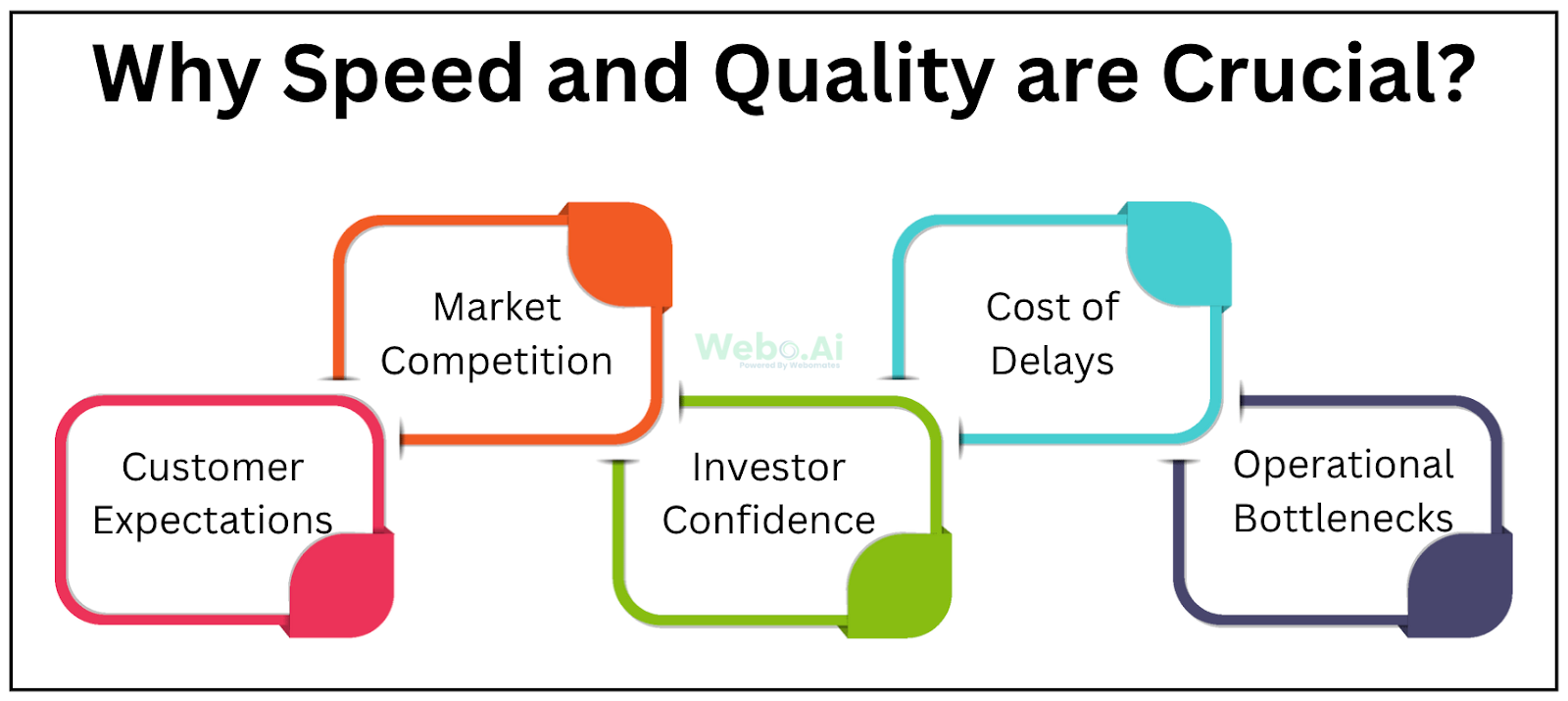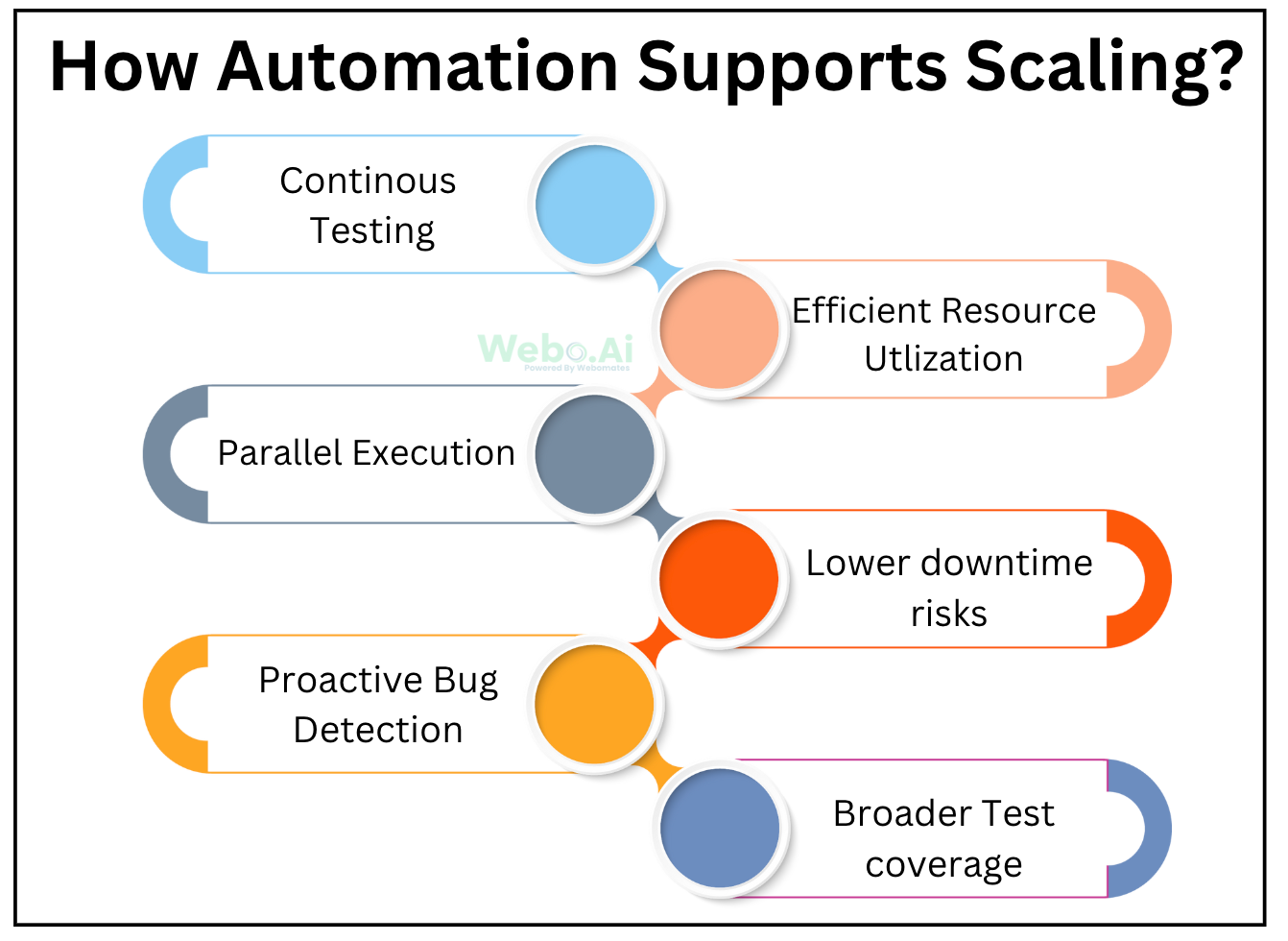Why is Test Automation the Secret Weapon for Recently Funded Companies?

Published on March 24, 2025
Introduction
You just secured funding- congratulations! Now, the real work begins. Investors are eager to see results, and the pressure to scale quickly while maintaining quality is immense. The market waits for no one, and manual testing simply won’t cut it. Automated testing plays a crucial role in maintaining speed, efficiency, and product reliability while scaling.
The Post-Funding Pressure: Why Speed and Quality Matter
Funding brings opportunity but also intense pressure. Your investors expect rapid execution, but customers won’t tolerate buggy releases. One high-profile failure could cost credibility and market share.

- Why Speed and Quality are Crucial
- Market Competition: Startups must release features faster than competitors to stay relevant. The first to market often secures the largest share.
- Customer Expectations: Users demand flawless experiences; a buggy product can drive them away permanently. Customer retention depends on smooth functionality.
- Investor Confidence: Frequent, high-quality releases reassure investors that their money is well-spent. Delays or failures erode trust and impact future funding.
- Cost of Delays: Bugs caught post-release are significantly more expensive to fix than those caught in testing. Companies risk losing revenue and reputation with every unresolved issue.
- Operational Bottlenecks: Without automation, testing cycles slow down development, reducing overall productivity and increasing stress on engineering teams.
Manual innovation slows everything down. Testing becomes a bottleneck, and developers waste time fixing post-release issues instead of building new features. Automated testing allows companies to scale efficiently while maintaining quality.
What is Test Automation and How Does it Help?
At its core, test automation means using software to execute test cases and compare outcomes automatically. In simple terms, it’s like having a robotic quality assurance team working around the clock.
Key Benefits of Test Automation
- Faster Execution: Automated tests run much faster than manual ones, accelerating development and deployment cycles.
- Higher Accuracy: Reduces human errors, leading to more reliable results.
- Scalability: Adapts to increasing product complexity without adding manual effort.
- Cost Reduction: Lowers expenses associated with post-release bug fixes and long test cycles.
- Regression Testing: Ensures that new updates don’t break existing functionality.
- Seamless CI/CD Integration: Works within automated deployment pipelines to detect issues early.
- Comprehensive Test Coverage: Executes thousands of test cases to catch critical flaws before deployment.
A leading EdTech company reduced release cycles by 40% after implementing test automation. This means faster feature rollouts without compromising quality.
Scaling Efficiently: The Role of Test Automation in Growth
Growth brings complexity. More features, more integrations, and more chances for things to break.
Challenges of Scaling Without Automation
- Overburdened QA Teams: More features mean more tests, stretching manual testers beyond capacity.
- Delayed Releases: Without automation, testing takes longer, slowing down product launches.
- Accumulating Technical Debt: Unresolved bugs and patches make future development harder and riskier.
- High Risk of Failures: Complex products are harder to test manually, increasing the chance of unnoticed issues reaching customers.

How Automation Supports Scaling
- Continuous Testing: Runs tests alongside development to catch issues early.
- Parallel Execution: Multiple test cases run simultaneously, speeding up testing.
- Proactive Bug Detection: Identifies issues before they impact customers.
- Efficient Resource Utilization: Engineers focus on development rather than repetitive testing.
- Broader Test Coverage: Critical user journeys are continuously validated.
- Lower Downtime Risks: Detects potential failures before deployment.
Automated testing allows businesses to handle growth without sacrificing product quality or increasing operational costs.
Why Investors Want to Protect Their Investments?
Investors don’t just fund companies- they fund potential. Poor product quality can destroy that potential.
How Test Automation Aligns with Investor Priorities
- Operational Efficiency: Faster releases lead to quicker market entry and revenue growth.
- Scalability: Companies with automation handle complexity more effectively, making them better investment prospects.
- Risk Reduction: Minimizes chances of product failures that lead to customer churn and reputational damage.
- Stronger Market Position: Efficient processes make a business more competitive and attractive for acquisitions or future funding rounds.
- Higher Valuation: Companies with robust automation strategies demonstrate disciplined operations and scalability, increasing their worth.
A structured testing strategy reduces risk and boosts investor confidence, making a company more appealing for continued funding.
Overcoming Common Myths of Test Automation
- “Isn’t it too expensive?” → The initial cost pays off in long-term savings, as automation reduces bug fixes, support costs, and downtime.
- “We’re moving too fast for automation.” → Automated testing accelerates development by providing faster feedback, enabling teams to deploy faster and more frequently.
- “We don’t have in-house expertise.” → Tools like Webo.Ai simplify automation with no-code solutions, making it accessible for all teams.
- “Automation replaces manual testers.” → Not true. Automation complements manual testing, handling repetitive tasks while allowing QA teams to focus on strategic testing.
- “It’s too rigid for agile teams.” → Modern automation tools are highly adaptable and work within agile development cycles.
How Webo.Ai Can Help
Scaling post-funding is challenging, but automation simplifies testing and accelerates product delivery.
Why Choose Webo.Ai?
- No-Code Automation: Simple, user-friendly setup without coding requirements.
- AI-Enhanced Efficiency: Smart test case generation reduces maintenance effort.
- Seamless Integration: Works with existing CI/CD pipelines for smooth deployments.
- Supports Growth: Adapts as businesses expand, preventing scalability issues.
- Continuous Testing: 24/7 execution for uninterrupted product reliability.
Startups and growing companies can eliminate bottlenecks, speed up releases, and maintain high product quality with Webo.Ai.
